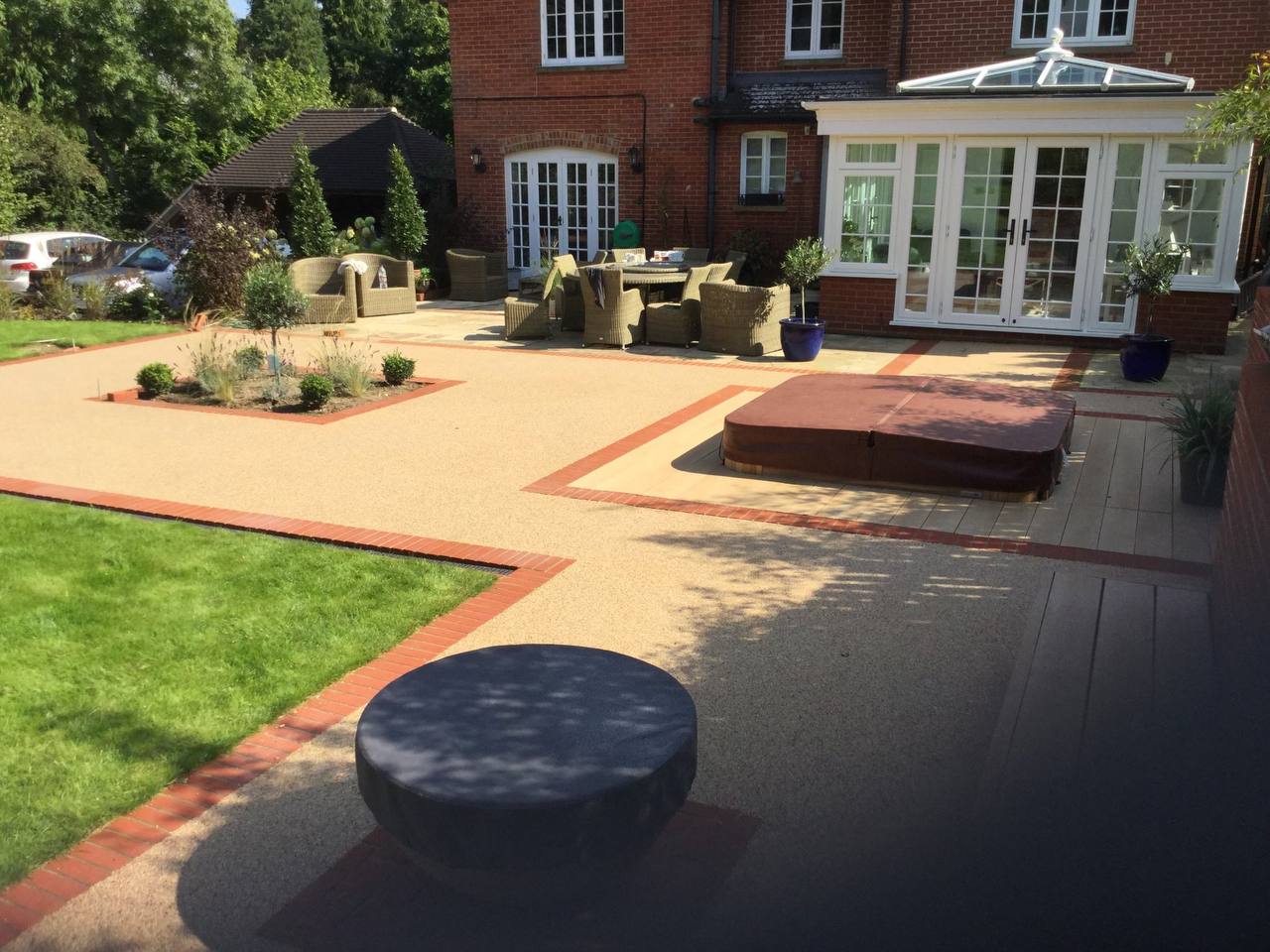DIY Tar & Chip: Is It Worth the Effort?
When it comes to driveway surfacing, tar and chip remains a popular choice among homeowners looking for a balance of durability, natural aesthetics, and cost-effectiveness. However, with online tutorials and DIY materials readily available, some homeowners are tempted to take on tar and chip installation themselves. The question is — is DIY tar and chip worth the effort and risk? At Rye Driveways & Surfacing, we’ve seen many property owners in Rye, East Sussex, start projects with good intentions, only to face challenges that compromise the quality and longevity of their driveways.
Understanding Tar and Chip Surfacing
Tar and chip, also known as chip seal, is created by applying a layer of hot bitumen (tar) followed by an even spread of decorative stone chippings. Once compacted, the surface forms a hard-wearing and visually appealing finish.
This surfacing option is ideal for driveways, rural roads, and private lanes due to its:
- Excellent durability in variable weather conditions.
- Attractive, natural appearance that blends into countryside surroundings.
- Good traction, even in wet weather.
However, while it appears simple in concept, tar and chip surfacing is far from easy to execute properly — especially without the correct tools, machinery, and experience.
The Challenges of DIY Tar and Chip
Laying tar and chip requires specialist knowledge and equipment to achieve a stable and even finish. Below are the main challenges homeowners face when attempting it as a DIY project.
1. Temperature and Timing Issues
Bitumen must be heated to a specific temperature before application. If it cools too quickly or is applied unevenly, the surface will not bond properly, leading to weak spots and premature wear. Professional contractors use calibrated equipment to ensure consistent heat and correct timing — something that’s extremely difficult to replicate at home.
2. Uneven Stone Distribution
The strength and appearance of a tar and chip driveway depend on even distribution of the chippings. Applying stones by hand or without the correct spreading machinery often leads to patchy, uneven surfaces that break down faster.
3. Poor Surface Preparation
Tar and chip installation requires a properly graded and compacted base. If the ground underneath is unstable, water will pool beneath the surface and cause cracks, potholes, or delamination. Rye Driveways & Surfacing ensures every project begins with meticulous groundwork to guarantee stability and longevity — something most DIY attempts overlook.
4. Equipment Limitations
Professional tar and chip application involves bitumen sprayers, aggregate spreaders, and mechanical rollers. Without these tools, it’s nearly impossible to achieve a professional-grade finish or ensure full material adhesion.
5. Shortened Lifespan
Even minor errors in temperature, thickness, or compaction can reduce the lifespan of the surface. While a professionally installed tar and chip driveway can last for many years, a DIY attempt often deteriorates much sooner, leading to repairs or full replacement.
Professional Tar and Chip Installation: Why It Matters
At Rye Driveways & Surfacing, we often receive calls from homeowners in Rye, East Sussex, seeking help to correct DIY surfacing problems. In nearly all cases, the issues stem from a lack of proper preparation or equipment.
A professional installation offers:
- Consistent coverage for a strong, long-lasting bond.
- Accurate grading and drainage, preventing standing water.
- A smoother, more attractive finish that enhances kerb appeal.
- Precision timing and compaction, ensuring the materials set correctly.
When done by experienced contractors, tar and chip surfacing delivers exceptional durability and an elegant, natural look that complements both traditional and modern homes.
Maintenance Considerations
Even after installation, maintenance plays a crucial role in preserving a tar and chip driveway. Professional installations are easier to maintain because the materials are correctly compacted and bonded. Homeowners should:
- Sweep regularly to remove debris and prevent moss growth.
- Avoid heavy turning movements during the curing phase.
- Monitor surface wear over time and reapply chips as needed.
With proper care, your driveway will remain functional and visually appealing for many years — especially when installed by experts like Rye Driveways & Surfacing.
Why DIY Isn’t Worth the Risk
Attempting a DIY tar and chip surface may seem cost-effective initially, but the long-term consequences can outweigh any perceived savings. Improper installation can lead to:
- Uneven patches and weak spots.
- Poor drainage and water pooling.
- Cracking and early degradation.
- Costly professional corrections later.
In short, the skill, precision, and tools required for quality results make tar and chip surfacing best left to trained professionals.
The Professional Touch from Rye Driveways & Surfacing
Rye Driveways & Surfacing provides professional tar and chip driveway installations across Rye, East Sussex. Our team combines industry expertise, premium materials, and attention to detail to deliver driveways that not only look beautiful but also perform exceptionally well over time. Whether you’re upgrading an existing surface or installing a new one, our experienced team ensures every step — from preparation to compaction — meets the highest standards.
Conclusion
While DIY tar and chip surfacing might appear simple, it’s a complex process that demands technical precision and professional tools. Mistakes made during installation can lead to costly repairs, safety issues, and a shorter lifespan for your driveway.
Choosing a professional team like Rye Driveways & Surfacing in Rye, East Sussex, ensures a smooth, long-lasting finish that’s built to handle everyday wear and weather. With expert installation, you’ll gain both durability and aesthetic appeal — without the risks of a DIY approach.
Call us on: 01797 334 498
Click here to find out more about Rye Driveways & Surfacing
Click here to complete our contact form and see how we can help with your driveways.

